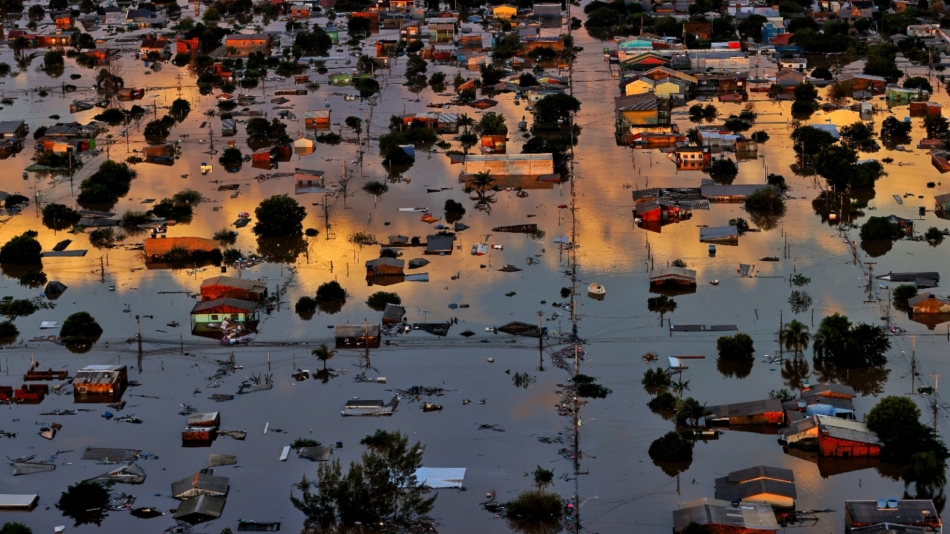
About the relationship with people in RS
- It is a time of great commotion and sadness, especially for the people of Rio Grande do Sul. Leaders and managers are expected to demonstrate empathy and adequate understanding of the seriousness of the facts. To achieve this, it is important to have a flow of credible information to supply leadership;
- Communicate clearly the impacts on the company, open structured listening spaces to avoid rumors and people becoming paralyzed. Highlight the need to maintain operation routines;
- Internal communication, through managers and official company channels, is essential at this time: ensure that the information necessary for the smooth running of operations reaches teams with agility, clarity and precision. It's worth being redundant;
- Prioritize company employees who need help. It is important to respect people's privacy, in this sense, evaluate the best way to share information regarding vulnerable situations. Avoiding mentioning names in general communications is ideal;
- Benefits or support of any nature for employees must have clear criteria, disclosed transparently and centralized in HR, with knowledge of the leaders of each team;
- Stimulate internal engagement in voluntary actions, both from the point of view of help and support that can be offered to those impacted by the floods and in day-to-day operations, as many professionals will need to make up for the absences of affected colleagues;
- Attention leaders and managers: do not encourage or make accusations against political leaders and governments in internal meetings or public demonstrations. It exposes the company, diverts focus, polarizes and generates more anxiety and concern;
- Be aware of the spread of fake news. Create internal alerts, discourage the constant sending of unchecked news in the company's internal groups and try to guide people to get information from serious, credible sources, based on official data;
- Be a positive force, stimulating resilience in people and looking at reconstruction. Be aware of the internal climate and areas of need for attention and support.
About donations and help from companies
- Donations to support affected communities are important and necessary and an effective demonstration of the company's commitments to its ESG agenda;
- Choose known and safe fundraising channels. There are numerous initiatives, focused on different natures (rescue, food, cleaning, hygiene, reception and health, infrastructure, connectivity, transport, fuel, among many other needs). Choose the ones that make the most sense for your company;
- Be careful not to focus on discrediting other donation channels related to governments, celebrities and NGOs. It can lead to misunderstandings and more anxiety.
Some precautions are important:
If you are going to disclose donated amounts, keep in mind that there is a risk of generating criticism if people consider that the donation is not consistent with the size of your company;
Make sure you are maintaining coherence of actions inside and outside the company (e.g.: support your employees in the same way you are supporting the community);
The use of logos on cards advertising solidarity initiatives must be appropriately scaled, as it can generate marketing perception and opportunism. Assess whether it is necessary information and use it with discretion.
About external communication
- O Positioning on social networks and interacting with the public requires sensitivity and serenity. In light of the tragedy, it is natural for the population to publicly accuse companies of their actions. In this scenario, pay attention to important points:
- Avoid responding individually to demands on social media.
- Use your channels to inform, with force and redundancy, the actions taken during the crisis, but remember: the larger the company, the greater the expectation of its contribution.
- All communicated actions need concrete evidence to avoid questions. Be careful not to generate wrong interpretations about what the company is communicating.
- Keep in mind that the crisis is still happening, with new facts every day. Therefore, an official position can quickly suffer on social media. If you do, you will need to update, especially in escalation scenarios.
- If you want to provide transparency to the difficulties that the company itself is facing – and it is often necessary – communicate clearly and in a tone appropriate to the scale of the problem, so as not to appear that you are belittling even more serious situations that homeless people are going through.
- Make it clear in your communications that the company is permanently monitoring the developments of the tragedy and will take the necessary measures at all times. Remember that the negative impacts will be felt for a long time and will require everyone to mobilize for reconstruction.
- It is valid to share requests/channels for help, however, avoid the perception that you are 'outsourcing' the responsibility of donating to the population. It is more accepted when the company also participates in donations.
2. Review your external communication to avoid appearing distant and indifferent to events. This is not the time for festive communication, and be especially careful with previously scheduled sponsored posts and content, such as:
- Campaigns and/or advertising
- Communications about company initiatives unrelated to the case
- Disclosures that may be perceived as frivolous or commercial
3. Revisit your external events calendar, adapting it to the impacts experienced by the community where the company is located and its main audiences;
4. The channels of leaders and spokespersons are confused with those of the company. It is necessary to maintain coherence between these communications.